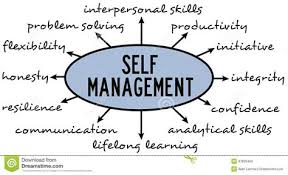Pros:
Cost Savings:
- Additional Detail: Beyond management fees, self-managed strata might save on other administrative costs. However, it’s essential to factor in the potential costs of training or legal advice if owners lack expertise.
Control:
- Additional Detail: Direct control allows for more tailored management decisions and potentially quicker responses to issues. However, it can also mean that personal biases or preferences could influence decisions.
Community Involvement:
- Additional Detail: A self-managed strata can foster a stronger sense of community and cooperation. However, this assumes that owners are proactive and engaged rather than passive participants.
Customization:
- Additional Detail: Custom management styles can better reflect the specific needs and desires of the owners. However, flexibility in management might also lead to inconsistency or lack of uniformity in decision-making.
Cons:
Time Commitment:
- Additional Detail: Managing a strata involves tasks like budgeting, scheduling repairs, and handling disputes, which can be time-consuming and stressful. The burden might fall unevenly among owners.
Lack of Expertise:
- Additional Detail: Without professional experience, owners might struggle with complex issues such as legal compliance, maintenance standards, or financial planning. Mistakes could be costly or even lead to legal problems.
Legal and Financial Risks:
- Additional Detail: Self-managed strata must comply with various laws and regulations, such as the Strata Property Act in BC. Failure to meet legal or financial obligations can result in penalties or legal action.
Conflicts:
- Additional Detail: Disputes among owners can escalate if not managed effectively. Establishing clear communication channels and conflict resolution mechanisms is crucial to mitigate this risk.
Additional Considerations:
Training and Resources: Self-managing strata might benefit from training or resources provided by strata organizations or legal experts. This can help owners handle their responsibilities more effectively.
Technology: Utilizing technology, such as management software, can streamline administrative tasks and improve efficiency.
Insurance: Adequate insurance coverage is crucial. Self-managed strata need to ensure they have proper insurance to cover various risks, including property damage and liability.
Contingency Planning: Having a plan for unexpected issues, such as sudden repairs or financial shortfalls, is essential to managing a strata effectively.
Deciding to self-manage requires careful consideration of your community’s dynamics, the willingness of owners to participate actively, and the ability to handle administrative and legal responsibilities. It can be a rewarding experience if the owners are well-prepared and committed to making it work.














